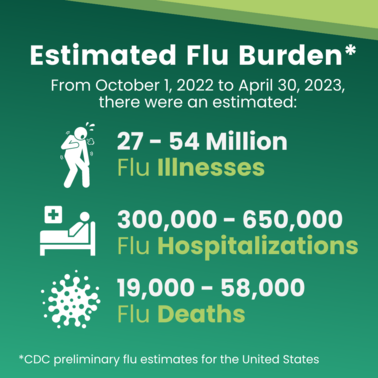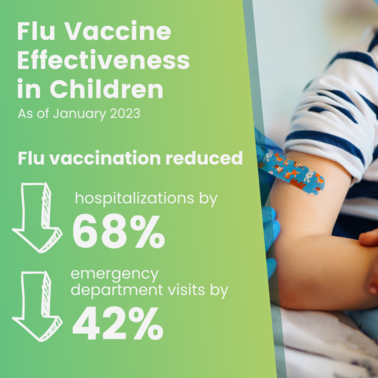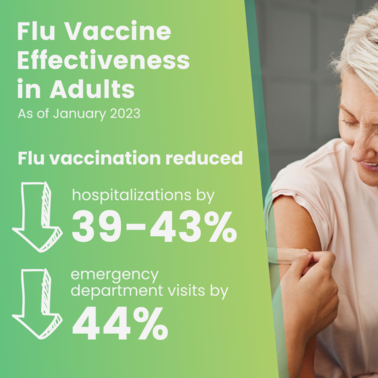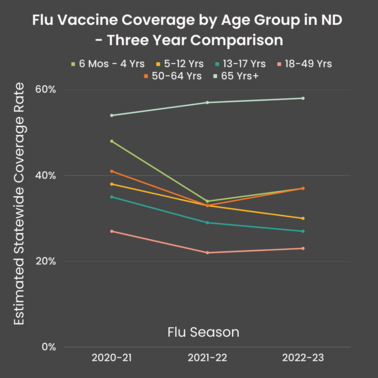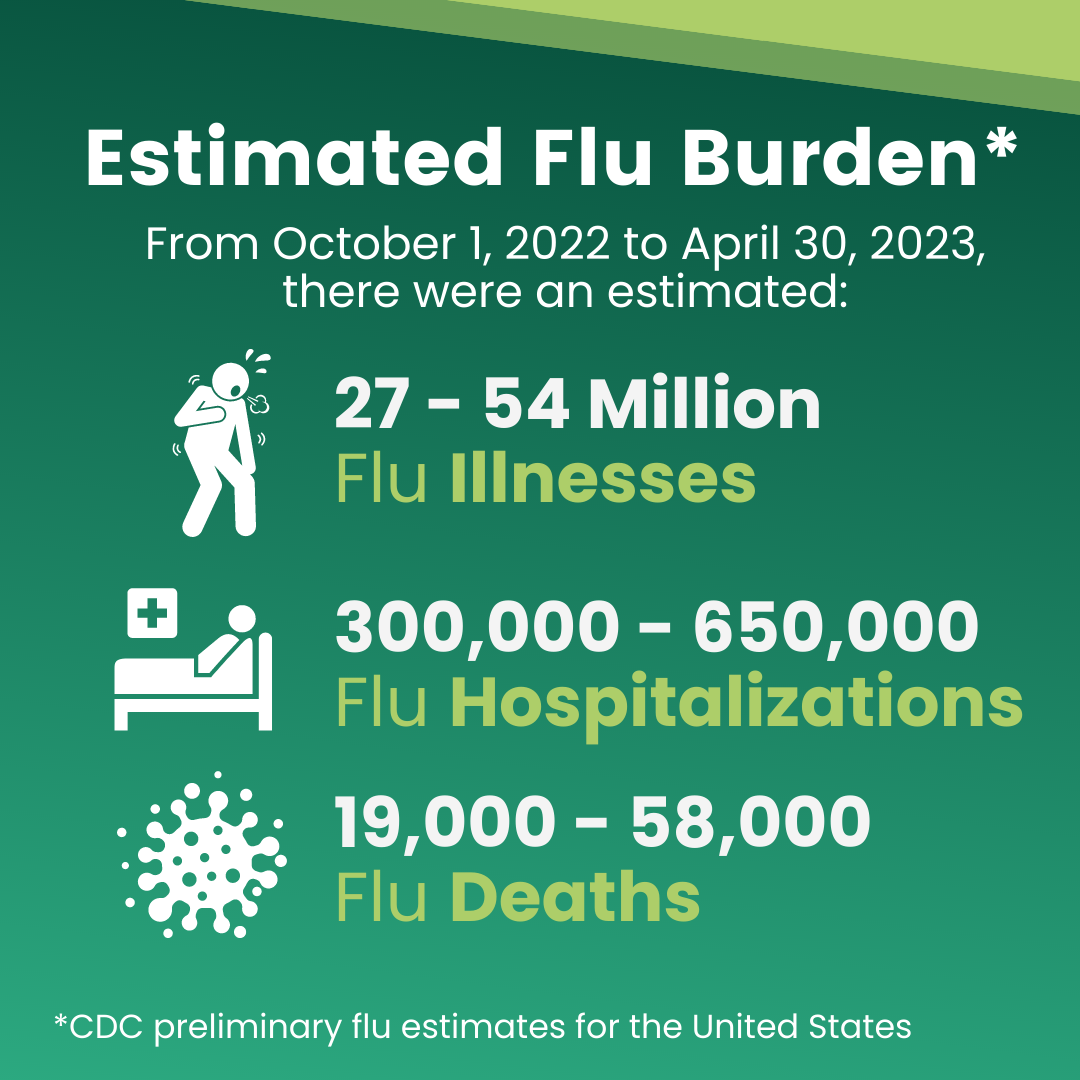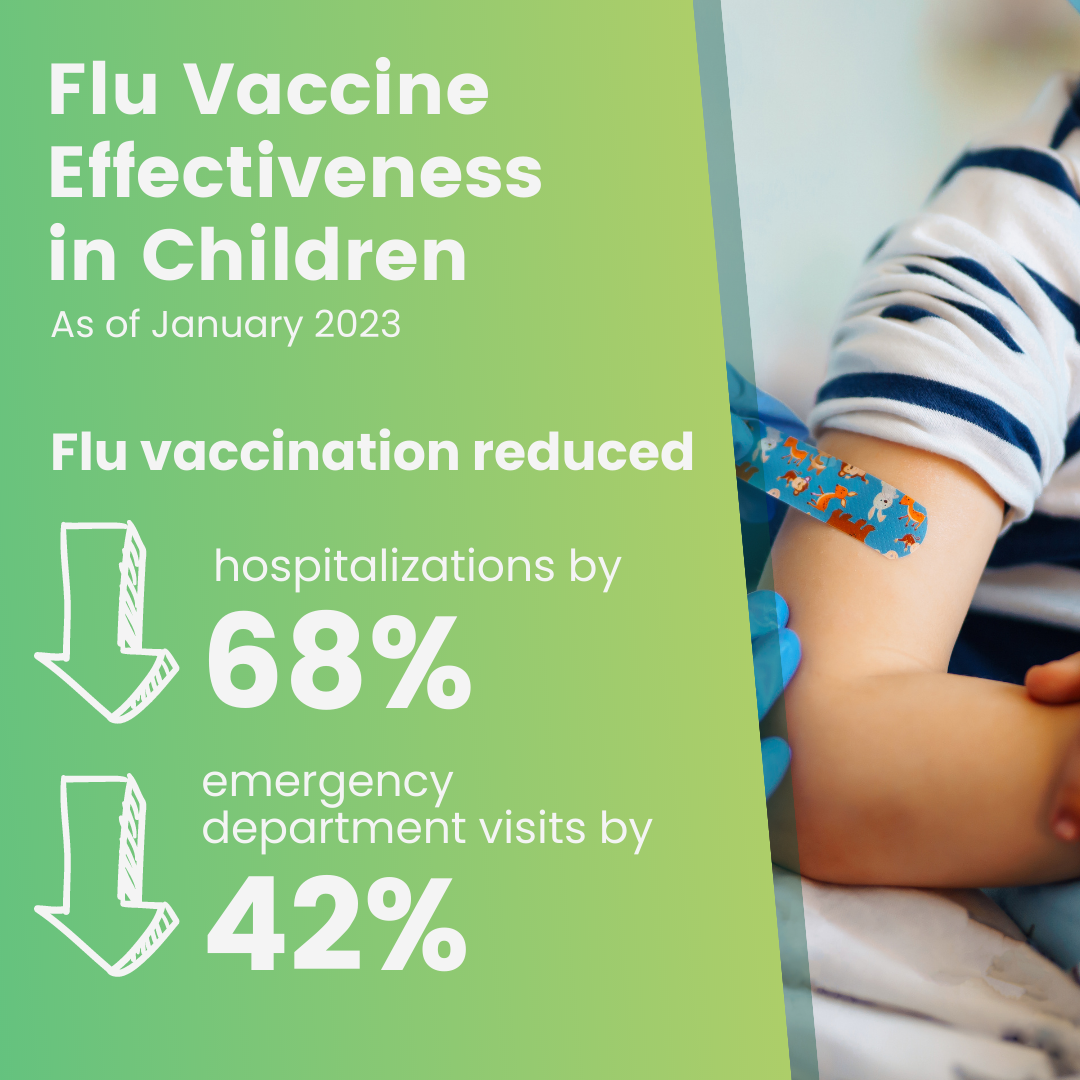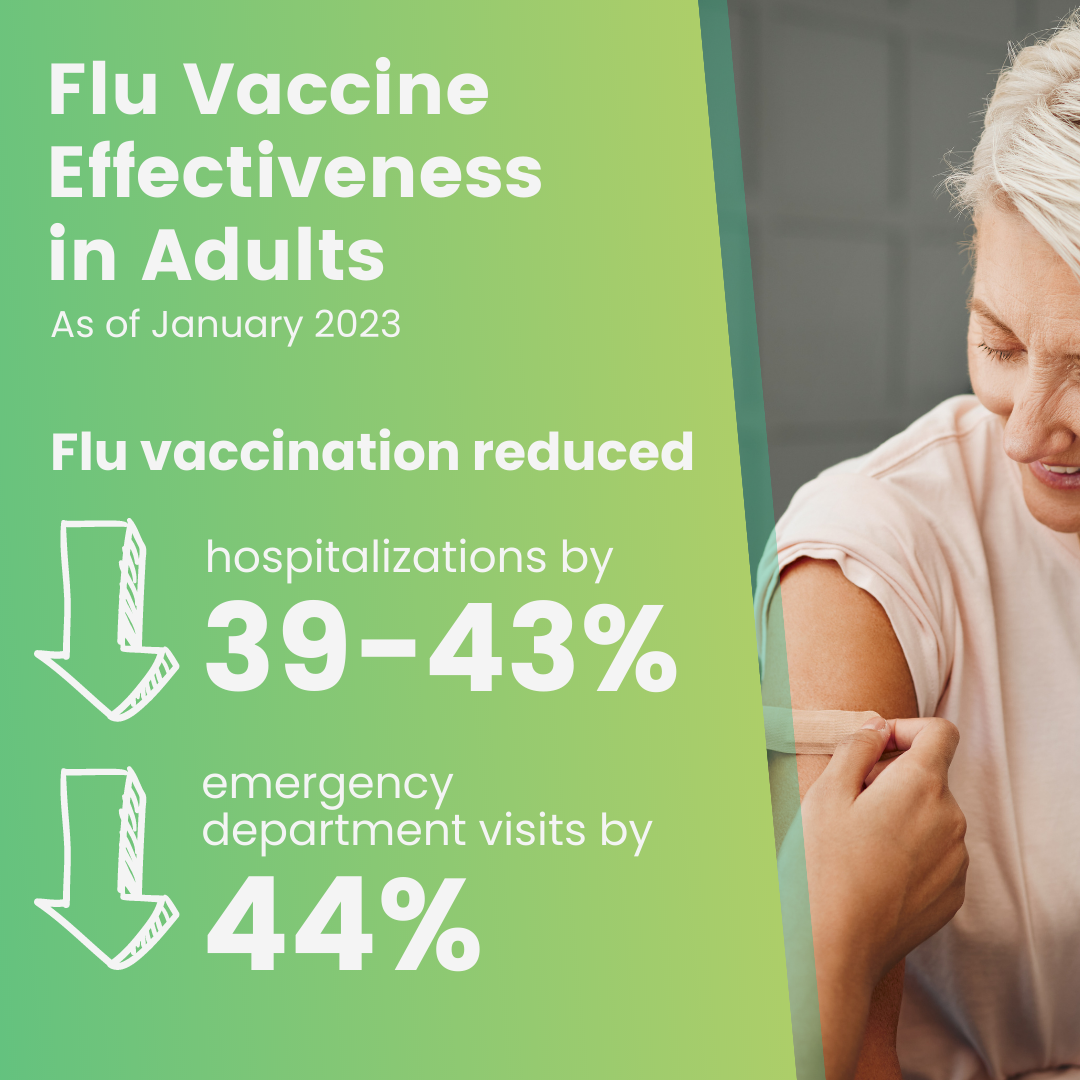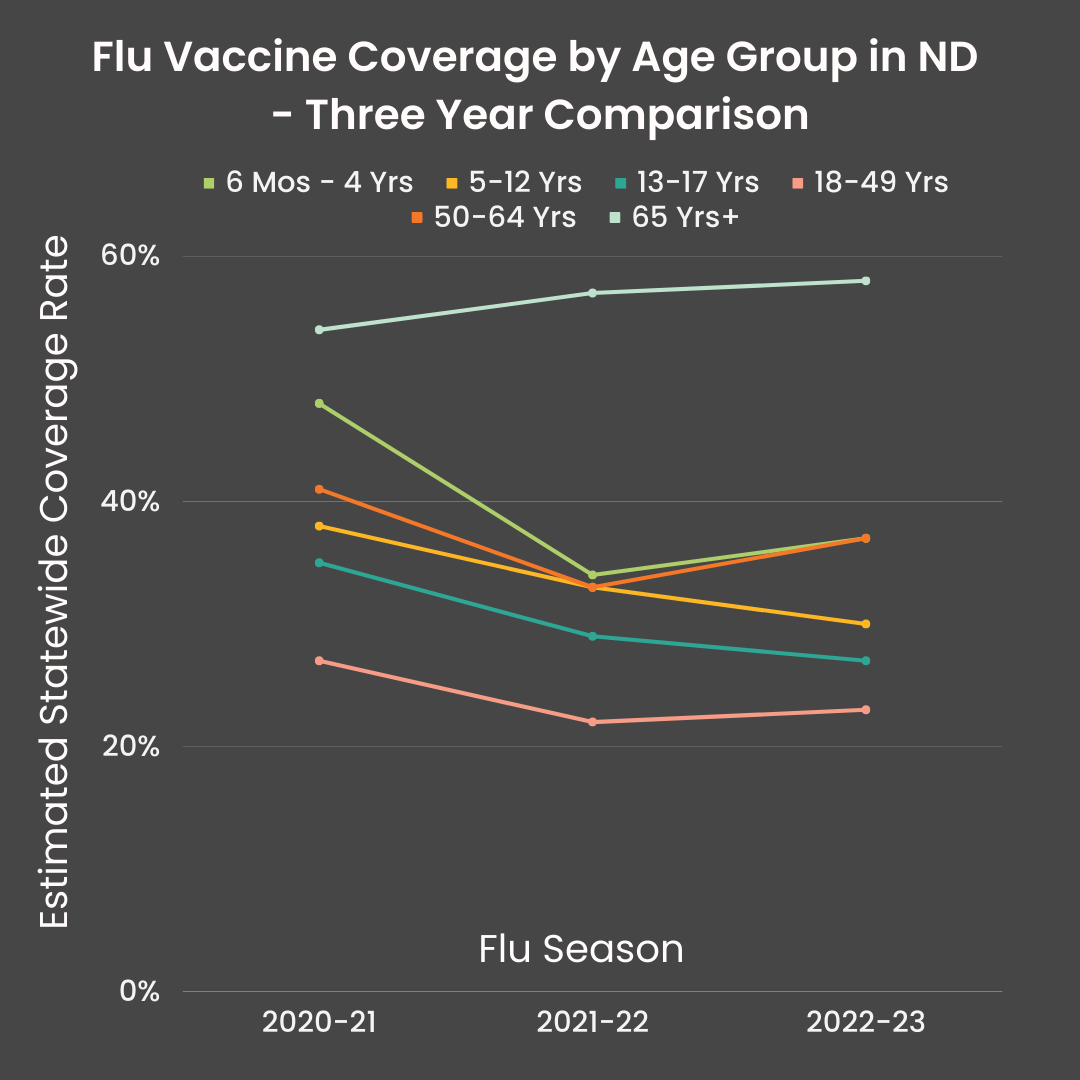Influenza
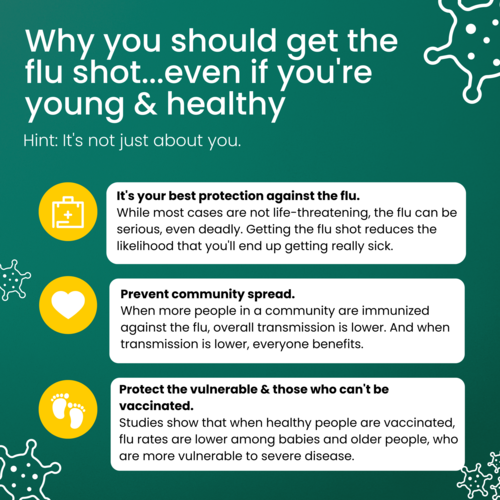
What is it?
Influenza (also commonly called the flu) is an illness caused by the influenza virus, which can cause respiratory illness in humans and in other animals. This virus is spread from person to person via droplets. Like RSV, influenza transmission increases seasonally—though it can vary from year to year, Flu season begins in the fall, and usually cases peak from December to February. Although most people recover within two weeks, Influenza can cause mild to severe complications such as sinus infections, pneumonia, and even death. Those at highest risk for complications are adults over 65, pregnant people, children under 2, immunocompromised people, and people with chronic diseases such as heart conditions or asthma.
The North Dakota department of Health and Human Services records around 2,800 positive flu tests each year, but the number of North Dakotans who get the flu each year and do not get tested is likely much higher.
Flu Vaccine
The best way to prevent yourself and your neighbors from getting the flu is by getting the flu shot annually.
You can still get the flu even if you've had a vaccine, but you're much less likely to develop severe disease. Scientists predict the makeup of the upcoming year's flu virus and do their best to develop a vaccine to 'match' it. Even if it's not a perfect match, you'll still build antibodies, and if you do get the flu, chances are you won't get as sick.
Studies show that communities with high flu shot uptake have less community transmission. So, even if you're young and healthy, it's still a good idea to get the flu shot every year.

